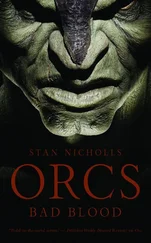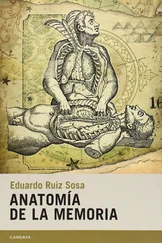She was not the whole story, for he had other projects. In the new year private drama had to share space in the new diary with the public kind. The parish entertainments committee that started meeting back in the autumn had generated a real show, his first Hanmer pantomime – and suddenly all the world’s a stage. He limbers up on New Year’s Day by doing a ‘turn’ himself in the parish hall, as part of a very amateur concert, a monologue as ‘Fagin in the Condemned Cell’. But for the panto he’s the prime mover – mostly from behind the scenes – recruiting the band, rehearsing the cast, and painting the scenery. The diary entries take on a surreal savour, when you remember the real-life drama he’s escaping from. Armed with bolts of cloth and cans of paint, he is levitating out of the rows and scenes to create in their midst scenes from another world, the innocent, archetypal land of Cinderella: ‘Got up this morning to start painting the scenery. Commenced with the woodland glade and got on well with it until 4.30 … sat in study thinking out a scene for the kitchen … finished scene 1 this morning. Put it out to dry this afternoon.’
He’s wonderfully well insulated from the raw real. Everything takes on an extra dimension of theatre , or to put it another way, bad faith . Thus he resolves to simplify his life and make a moral choice – ‘I must make up my mind what to do’ – but actually he is revelling in all the complications of indecision, the beauty of both/and: ‘So this is the end or is it the beginning of a new era for me.’ The personal plot thickens – Mrs Watson talks to him about MB, MB and Hilda row face to face … The village is a carnival of gossip. He is defiant and grandly outrageous. These days he and MB are meeting in the church, God’s safe house. It’s not the emotional logic of adultery that shapes events, though, but pantomime preparations. The show must go on – ‘a long and serious talk’ with MB gives way to ‘a good rehearsal’. He has finished the final ballroom backdrop (1 February) and is now hanging the whole sequence of scenes and painting the wings in situ in the parish hall. ‘Had a row with Hilda in the house during the day,’ he notes on 3 February. ‘After that went to the Hall and continued painting. MB brought me a cup of tea.’ He’s cutting it fine, for the first matinée is only four days away, but it’s a real labour of love. He is exercising his vocation to the full at last – the hard-working wizard making magic for the crowd.
He has started to turn into the Grandpa I remember – except that he has yet to taste the bitterness of being really found out. The pantomime was a triumph. He put on evening dress to conduct the orchestra, Sir Edward Hanmer publicly praised him from the stage and so – on the final night – did Lady Kenyon. So far, no one held his sin against him, MB was apparently a mere peccadillo compared with the major magic of Cinderella . Indeed, it looks as though people somehow felt it was all part of the show. He was having a love affair with the parish. No wonder he was suddenly forlorn and lonely when the curtain fell. His life was as much of a tangle as ever, but it struck him as banal. He remarked that time hung heavy on his hands – which is exactly the phrase he used just before he met MB. He was restless, impatient to affront the next phase of his fate. This time the cast would involve my mother (she hadn’t starred in the first panto, nor had he been paying her much attention) and this time things would go badly wrong, and he would fix the future.
The quiet of Hanmer gave Grandpa the willies whenever he slowed down sufficiently for it to invade his consciousness. He heard time passing, then. Depression lay in wait and he would see the prospect of a more vivid life, the life his talents deserved, dissolving away like a mirage. I think this is why scenery-painting for the pantomime absorbed him so blissfully. He could create the illusion of perspective without having anywhere to stand to check he’d got it right (mostly he painted with the canvas spread out on the floor of an attic) and this trick was a version of the moral trick he needed to play on himself constantly. The moral trick – or more truly the morale trick – was harder, however. The show he put on that first Hanmer winter gave him a taste of carnival freedom and yet its very success left him in post-coital gloom: ‘The village is very quiet tonight after all the excitement of this week. What a week!’
The affair with MB had developed along similarly perverse and disappointing lines, since she had not only become the theme of endless Hilda rants, but also a kind of wife number two, part of the furniture of his frustration. So it was horribly convenient that the village – or at least the influential people, like Lady Kenyon – seemed disposed to blame MB for the scandal. If he cast her off he’d be allowed to get away with it. And he was ready (for the wrong reasons) to do the right thing. In short, he behaved like a complete cad towards MB.
Конец ознакомительного фрагмента.
Текст предоставлен ООО «ЛитРес».
Прочитайте эту книгу целиком, купив полную легальную версию на ЛитРес.
Безопасно оплатить книгу можно банковской картой Visa, MasterCard, Maestro, со счета мобильного телефона, с платежного терминала, в салоне МТС или Связной, через PayPal, WebMoney, Яндекс.Деньги, QIWI Кошелек, бонусными картами или другим удобным Вам способом.












